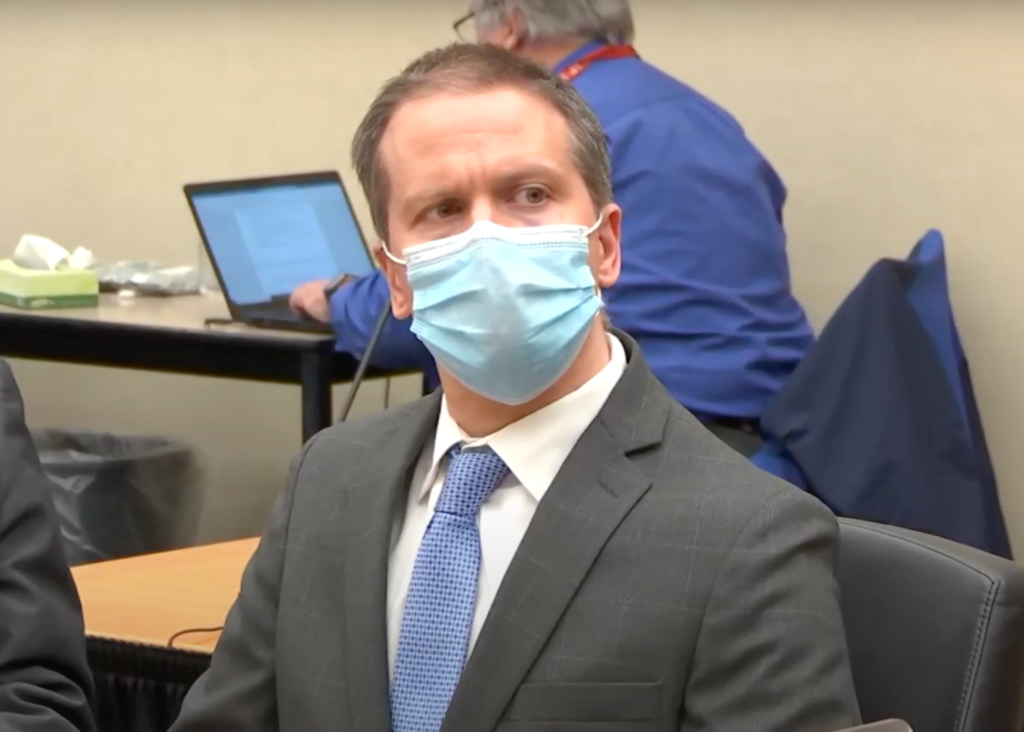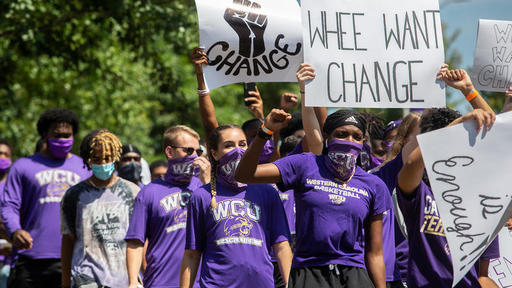Former police office Derek Chauvin was found guilty on all counts for the murder of George Floyd. The 12-person jury in Minneapolis found Chauvin, 45, guilty of unintentional second-degree murder, third-degree murder and second-degree manslaughter.

The trial that started, March 29, almost a year after the murder has been one of the most closely watched cases in recent memory, setting off a national reckoning on police violence and systemic racism even before the trial commenced.
WCU’s community has also been watching and hoping for change and justice.
“This verdict does not repair the harm, damage, and distress many in our community have felt over the past year and it does not simply make everything better. As a community and nation, we continue the search for an inclusive and just union,” Chancellor Dr. Kelly Brown said in a message to WCU community on April 20 soon after the verdict was made.
Dr. Dana Paterson the director of WCU Intercultural affairs said that a guilty verdict was a chance for change of the unjust system.
“The entire system has flaws…at the police level, at the court level, at the incarceration level, mass incarceration, at a law level and introducing laws and bills that target and discriminate unfairly and unjustly against certain populations. All of that needs to be fixed and addressed. You can’t have just this trial and say justice will be served. What about all those cases that remain,” said Paterson. You can watch the full interview with Dr.Patterson here.
WCJ talked with WCU students who were following the trial and reflected on how they saw what was happening, what was said in the courtroom and how the trial impacts them.
“As a Black woman at a predominantly white institution (PWI), the Derek Chauvin trial does not help my uneasiness about the relationship between law enforcement and the Black community,” said Trinity Higgins, a WCU freshman student in an interview before the verdict. “It shows me that the law protects murder just because someone has put on a uniform.”
Higgins explained that growing up she has always attended PWI schools but never felt concerned for her safety until now.
“I’m on my own without my parents to rely on if something were to happen to me at school and at this point in time, I do not feel safe contacting the police for any reason in fear that I, or one of my friends, could become a victim of police brutality,” Higgins explained.
Many students like Grady Thomas took high interest in the trial. Thomas is a senior student-athlete here at WCU, who has attended WCU all four years. He is a member of the WCU football team and a member of Omega Psi Phi Fraternity, Incorporated.
“I’m watching the case and I feel as if there are a lot of irrelevant facts being brought up about Floyd. Nothing about how Floyd was treated was humane. He was killed at the hands of our protectors and watching this trial is just as disturbing as watching his murder,” Thomas, said.
WCU has its own issues with racism. The start of the fall semester 2020 was marked with two videos from WCU students saying derogatory language against black people. This led to an uproar throughout campus of students wanting justice and for those students to be held accountable, the students ended up being expelled from the university. This led to the Whee United march.

“Although the George Floyd case was only one person, things like this happen all the time. Racism is a front door problem in America and we’ve witnessed it here on campus multiple times,” said Maeva Hassani, the National Pan-hellenic Council president.
While the Derek Chauvin trial was going on, there was another fatal shooting to an unarmed black man during a traffic stop Sunday, Apr 10, 2021 in Brooklyn Center, Minn., that person being Daunte Wright. The now ex-police officer Kim Porter has been charged with second degree murder. Following the shooting, Minneapolis has been filled with protestors just like there was, and continues to be, for George Floyd. Wright’s death puts police brutality back in the hot seat once again and had intensified the trial that held Chauvin accountable for the murder of Floyd.
As the chancellor said “the end of this trial does not signal an end to the emotions many of you have felt.” And the university is open for listening and discussion.
WCU’s chief diversity officer, Ricardo Nazario-Colon, will host open Zoom room at noon each weekday until April 28 for faculty, staff and students to drop-in and participate in a respectful discussion.
WCU Counseling and Psychological Services is available for students who may need assistance. They can be reached at (828) 227-7469. After hours and on the weekends, call (828) 227-7469 and follow the prompts to reach an on-call counselor. WCU faculty and staff can activate the ComPsych employee assistance program counselors by calling (855) 259-0382.
“We must continue to build momentum, together as Catamounts, so that we can achieve the equitable, diverse, and inclusive community we aspire to be,” said Brown at the end of her email message to the WCU community.


